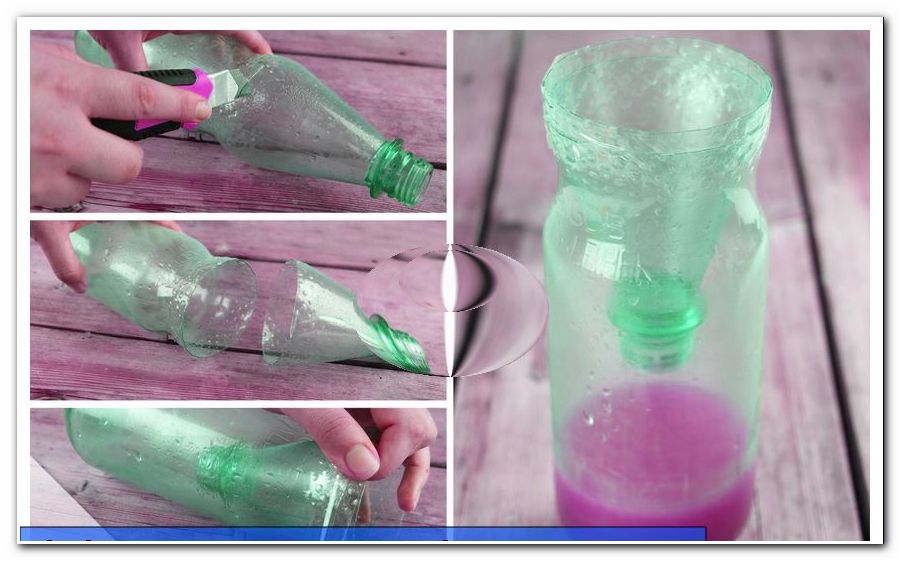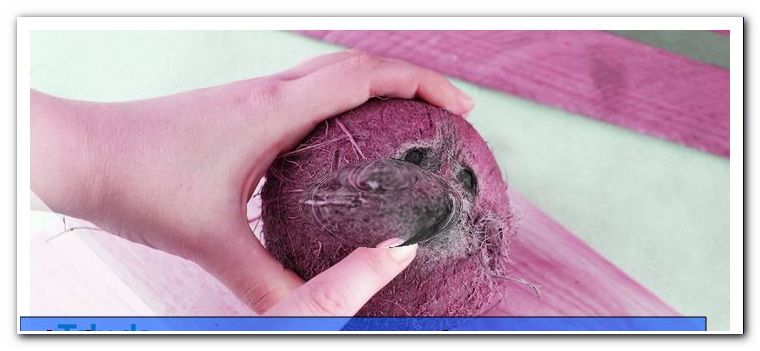Metal Drill Wiki: all types, prices + info to recognize

- Metal drill - types
- HSS type N
- HSS type H
- HSS type W
- HSS R
- HSS G
- HSS E
- HSS CO
- HSS Tin
- Anschliffformen
Metal drills are an important component for all kinds of home and DIY work, where holes in metallic materials are needed. Since normal drills are not intended for this job, HSS drills are used, which are made from a high-alloyed tool steel, the so-called high-speed steel, in English "High Speed Steel". These are offered in many different types, which can be used for different materials.
Whether you're a hobbyist or a metalworking job, metal drills are a must in your toolbox. The high-speed steel is a steel that can withstand temperatures of up to 600 ° C and is provided with alloys of carbon, molybdenum, tungsten, chromium, cobalt and vanadium. Due to the alloys used, these drills can be used for machining numerous metals without overheating or damaging them. For this reason, they are indispensable for many types of machining because they can effectively and safely work on the material through their alloys, the type and the beveled shape.
Metal drill - types
Behind the HSS stand the American Frederick Winslow Taylor, engineer, and Maunsel White, metallurgists, who together have been looking for a cutting material that could survive higher cutting speeds and the resulting temperatures. The first results came at the beginning of the 20th century and since then the metal drills have improved significantly, which is noticeable in the number of different types. The starting material is classic steel, which is improved with the alloy and then has the advantageous properties for cutting the metallic materials. Depending on the material to be machined, a different type and shape must be chosen.
Tip: When choosing a metal drill, make sure that it has the right type and shape, as this can significantly improve performance. While the type of drill defines which materials can be drilled, the shape tells how the drill penetrates into the material.
HSS type N
These are drills that are particularly effective at normal strength and hardness and can therefore be used for all sorts of projects. These drills are universally versatile and suitable for the following metals:
- 500 - 1, 300 N / mm² steel
- cast iron
- Steel (heat resistant)
- stainless steel
- malleable
- Materials made of iron
- Non-ferrous metals, including copper, zinc, brass and light metals

These drills have normal cutting properties and drill a hole in the material efficiently and quickly. They are often provided with a classic spiral, which can be used with a spiral or helix angle of 16 to 30 degrees for a variety of metals. This includes the point angle, which is measured at 118 or 135 degrees. The N-type is one of the most common types and often a necessary "basic".
Prices: between 0.35 - 3 euros for a drill
HSS type H
The HSS type H metal drill is completely different in its shape to the type N and can be used for the following materials:
- Steel from 1, 300 N / mm²,
- Light metal (short span)
- Magnesium alloys
- Brass (CuZn39Pb3)
- Bronze (short cutting)
- Hard plastic (acrylic or plexiglass, ABS)
- hard rubber
- Fulgurit
- Rock types (slate, coal, marble)

You see, this type works well for brittle, hard, or tough materials, not just metal. These metal drills can be seen in contrast to other types on their spiral, which is long twisted and has a helix angle of 10 or 13 degrees. The point angles of the species are 80, 118 or 130 degrees.
Prices: 3 - 30 euros for a drill according to quality
HSS type W
Also important is the HSS with the type W, which represents the complete opposite to the type H. Soft, long-chipping and tough materials can be processed with the metal drill bit:
- aluminum
- aluminum alloys
- bronze
- Light metal (hardened, tough)
- Plastic (soft)
- hardwood

Unique to this form are their wide angles, which allow the processing of soft materials in the first place. For example, the helix angle is 35 to 40 degrees and the apex angle is 130 or 135 degrees. The spiral is briefly twisted compared to the type W.
Prices: 1.5 - 30 euros for a drill, often between 4 - 7 euros
HSS R
The HSS R Metal Drill, like the other types without a type designation, has no angles but describes the possible uses of the machines and the individual properties. These metal drills represent the material, while the H, W and N drills define the type. They go hand in hand. This type can be used for the following devices:
- hand drill
- drill
It is the simplest variant of a metal drill and thus it can be easily cut. The following metals can be processed:
- stole
- cast steel
- cast iron
- malleable
- sintered iron
- bronze
- Brass
- aluminum
They look like any conventional drill bit.
Prices: 0.5 - 2 euros for a drill
HSS G
The HSS G stands out for its production, because it is milled directly from the steel and consists of one piece. Characteristic is the shiny spiral. The following materials can be processed with it:
- stole
- cast steel
- cast iron
- sintered iron
- graphite
- Brass
- aluminum
- bronze
They are very accurate during chipping and can be used for the following devices:
- drill press
- lathe
- milling Machine
Prices: 3 - 8 euros for a drill
HSS E
The HSS E is a drill shaped like the HSS G, but alloyed with cobalt, giving the drill a darker, rainbow-like color. This type is suitable for drilling in stainless steel.
Prices: on average 1 - 30 euros for a drill, strongly depending on the quality
HSS CO
The name HSS CO indicates a drill with a cobalt coating that is particularly resistant and self-centering. The cobalt alloy gives the drills a unique color scheme and allows them to drill tough or dense metals, especially stainless steel, alloyed or high-strength steel.
Prices: for the end user between 0.6 - 50 Euro for a drill, for professional versions up to more than 1.000 Euro
HSS Tin
HSS Tin are gold colored due to their titanium nitride coating and can handle all types of steel and non-metals. They are extremely high quality and are used for the most part in Akkubohrern.
Prices: up to 70 euros for a drill
Please note: there is still a large selection of different drill types in this area. These are specifically designed for a purpose, such as metal drills with a milling attachment, and vary from manufacturer to manufacturer.
Anschliffformen
When selecting suitable metal drills, it is important to pay attention to the correct ground shape, as these can significantly influence the drilling result. Depending on the cut, the drilling performance changes and some shapes can be efficiently combined with each species for good results. The forms are structured as follows:
1. Conical surface grinding: The conical surface grinding is by far the most common form of metal drills. This one has the following cuts:
- Form A: cross-cut point
- Form B: Pointed cutting edge and main cutting edge corrected
- Form C: for hard and tough metals, cross grinding
- Form D: specially designed for cast iron, pointed cross-cut and faceted edges
- Form E: particularly suitable for soft metals, shaped as the center point

2. Four-point bevel: the four-face bevel has only the form V. This shape is best suited for drilling in small materials and is not designed as a cone sheath compared to the other drills, but with four surfaces that are flat and therefore for these special ones Tasks are suitable.
3. Spiral point sharpening: this cut is S-shaped with respect to the cross cutting edge and thus optimally centered. They are often used for machining aluminum, as the centered bore better distributes the force in the material and does not damage the delicate fabric.
Tip: If you choose a whole set instead of a single drill, the cost is lower in most cases, but you may not have all the metal drills you need. Nevertheless, the purchase of a set can be worthwhile, which can cost depending on the quality and extent between ten to 200 euros.




